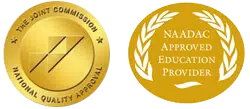Juggling your work and personal life is key when it comes to managing stress, staying healthy and preventing burnout. This is especially true if you’ve struggled with alcoholism or a past addiction. Failure to create a work-life balance can lead to chronic stress affects productivity and can lead to slip-ups in your alcohol addiction recovery. At Baystate Recovery Center, we help you discover healthy habits that can help reduce stress and keep you on a path to healing.
What is a Work-Life Balance?
A healthy work-life balance is the ability to juggle work and home responsibilities beneficially. The goal is to remain productive at work while still maintaining time for friends and family. Too often, we either spend too much time at work trying to get ahead or to achieve that next promotion, which may involve working overtime or on the weekends. As a result, relationships begin to suffer. Alternately, if you request too many days for school events, doctors’ appointments, or personal time off, your job can suffer.
To escape the stress from balancing the two, many turn to addiction. Maybe you go out after work to the bar with friends or have a drink when you get home to relax. There are alternatives to managing this type of stress.
How to Create a Balance
The best way to create a balance is to separate the two. Leave work stress and responsibilities at work. Don’t take work calls or answer emails once you leave the office. If you work from home, make sure you have a designated office space. Shut the door when you’re not working. Once you leave work, be sure to set aside time for friends and loved ones. Have nightly meals with your family, schedule time for hobbies, and keep a calendar for extracurricular activities.
Managing Stress
Occasionally, you may still feel stress from separating work and home responsibilities. You can ease the stress and avoid disrupting your alcohol recovery by incorporating a few stress relieving tips.
- Maintain structure – Keep your days structured by practicing good time management skills. Create to-do lists and keep a calendar of important events. Check off your to-dos as you go, so you can visibly see all you’ve accomplished.
- Take time for yourself – Always take time for yourself, whether it’s a bubble bath at the end of the day, reading or watching TV before bed or spending time with the kids. Schedule some downtime every day to help you relax and be sure to get in bed and get a good night’s rest.
- Maintain friendships – Having someone to talk to can be an important part of recovery. Talk to friends and family when you’re stressed and have them hold you accountable for your actions.
- Exercise and nutrition – Proper nutrition and regular exercise can help lower stress. Take a daily jog or walk. According to the Anxiety and Depression Association of America, even five minutes of activity a day is enough to lower stress.
At Baystate Recovery Center, we know how important it is for you to maintain a work-life balance during your recovery. Our treatment approach helps you develop healthy habits to reduce the chances of relapse. If you or someone you love is battling alcohol addiction, and you’re ready for help, contact us for more information on our treatment program.
Baystate Recovery Center, a clinically Infused 12-Step Treatment Center for Drug and Alcohol Addiction, was founded by two partners in addiction treatment services, John Checchi and Michael Wilson.



